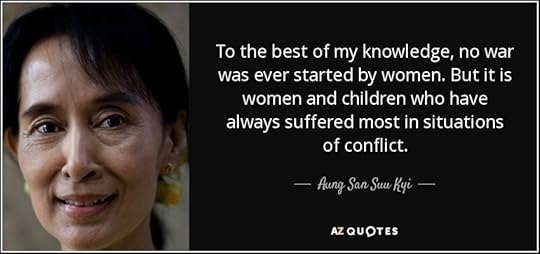Exponent II's Blog, page 117
March 17, 2022
Come Follow Me: Exodus 14–17 “Stand Still, and See the Salvation of the Lord”
These chapters begin when the Isrealites have just left Eqypt, and Pharoah and his army are in pursuit.
How do we know when it is time to hold our peace and let the Lord fight for us?
13 ¶ And Moses said unto the people, Fear ye not, stand still, and see the salvation of the Lord, which he will ashew to you to day: for the Egyptians whom ye have seen to day, ye shall see them again no more for ever.
14 The Lord shall afight for you, and ye shall hold your bpeace….
21 And Moses stretched out his hand over the asea; and the Lord bcaused the csea to dgo back by a strong east wind all that night, and made the sea edry land, and the fwaters were gdivided.
22 And the children of Israel went into the midst of the sea upon the dry ground: and the waters were a wall unto them on their right hand, and on their left….
26 ¶ And the Lord said unto Moses, Stretch out thine ahand over the sea, that the waters may come again upon the Egyptians, upon their chariots, and upon their horsemen.
27 And Moses stretched forth his hand over the sea, and the sea returned to ahis strength when the morning appeared; and the Egyptians fled bagainst it; and the Lord overthrew the cEgyptians in the midst of the sea.
Exodus 14:13-14, 21-22, 26-27
This story has been oft-repeated as a reminder of God’s power to deliver us in crisis.
How does the story of the parting of the Red Sea inspire you?How does God provide us deliverance from adversity?What do you learn from this story that can help you seek God’s deliverance in your life?
Since that time, when God’s people have needed faith and courage, they have often turned to this account of Israel’s miraculous deliverance. When Nephi wanted to inspire his brothers, he said, “Let us be strong like unto Moses; for he truly spake unto the waters of the Red Sea and they divided hither and thither, and our fathers came through, out of captivity, on dry ground” (1 Nephi 4:2). When King Limhi wanted his captive people to “lift up [their] heads, and rejoice,” he reminded them of this same story (Mosiah 7:19). When Alma wanted to testify to his son of God’s power, he also referred to this story (see Alma 36:28). And when we need deliverance—when we need a little more faith, when we need to “stand still, and see the salvation of the Lord”—we can remember how “the Lord saved Israel that day out of the hand of the Egyptians” (Exodus 14:13, 30).
—2022 Come Follow Me for Individuals and Families, Exodus 14-17
How do these verses affect the way we think about the events in Exodus 14?What do they suggest about how we seek deliverance from our trials?According to these verses, what is the spirit of revelation?How does it mean to be told in our minds and our hearts?
2 Yea, behold, I will atell you in your mind and in your bheart, by the cHoly Ghost, which shall come upon you and which shall dwell in your heart.
3 Now, behold, this is the spirit of revelation; behold, this is the spirit by which Moses abrought the children of Israel through the Red Sea on dry ground.
4 Therefore this is thy agift; apply unto it, and blessed art thou, for it shall bdeliver you out of the hands of your cenemies, when, if it were not so, they would slay you and bring your soul to destruction.
Doctrine and Covenants 8:2-4
There are many ways to build the kingdom of God as covenant-making, covenant-keeping disciples of Jesus Christ. As His faithful disciple, you can receive personal inspiration and revelation, consistent with His commandments, that is tailored to you. You have unique missions and roles to perform in life and will be given unique guidance to fulfill them.
Nephi, the brother of Jared, and even Moses all had a large body of water to cross—and each did it differently. Nephi worked “timbers of curious workmanship.”8 The brother of Jared built barges that were “tight like unto a dish.”9 And Moses “walked upon dry land in the midst of the sea.”10
They each received personalized direction, tailored to them, and each trusted and acted. The Lord is mindful of those who obey and, in the words of Nephi, will “prepare a way for [us to] accomplish the thing which he commandeth.”11 Note that Nephi says, “a way”—not “the way.”
—Michelle D. Craig, First Counselor in the Young Women General Presidency, “Spiritual Capacity” October 2019 General Conference
Why is it important to remember that there are “many ways to build the kingdom of God”?Why might we receive different inspiration about how to accomplish the same task?Miriam, the Prophet
Miriam, by Anselm Friedrich Feuerbach, courtesy of Web Gallery of Art
After safely crossing the Red Sea the children of Israel celebrate, led by Miriam, the prophet, who is Moses’s sister (Exodus 15:20-21).
Note that the King James translation identifies Miriam as a “prophetess” and Moses as a “prophet” in keeping with Old English grammar, which assigned a feminine suffix to words when the person so identified happened to be female. Other translations use modern English grammar and identify Miriam simply as a “prophet,” the same title given to Moses, or as a “woman prophet.” Prophet and prophetess are the same word and have the same definition. (See Bible Study Tools Exodus 15:20 and CBE International, Who are the woman prophets in the Bible?
How do we celebrate the Lord today?Why do we sing to the Lord?
20 ¶ And aMiriam the bprophetess, the csister of Aaron, took a dtimbrel in her hand; and all the women went out after her with timbrels and with dances.
21 And Miriam answered them, aSing ye to the Lord, for he hath triumphed gloriously; the horse and his rider hath he thrown into the sea.
Exodus 15:20-21
Let’s read some stanzas from the Song of Miriam.
The LORD is my strength and song, And He has become my salvation; He is my God, and I will praise Him; My father’s God, and I will exalt Him.
Exodus 15:2, New King James Version
Note that in the Latter-day Saint version of the King James Bible, footnote D in this Exodus 15:2 changes “prepare him an habitation” to “praise him.” The original King James Bible appears to have a mistranslation here, or at least, a very unusual word choice. “Praise him” is a much more common translation of this verse. (See Biblehub Exodus 15:2)
How is the Lord our strength and our song?How do we exalt God? (Isn’t God exalted already?)At the end of the song, Miriam envisions the Israelites passing safely past their enemies.
How are we “purchased”by the Lord?How can we find sanctuary in our modern lives?The Miracle of the Manna
16 aFear and bdread shall fall upon them; by the greatness of thine arm they shall be as still as a stone; till thy people pass over, O Lord, till the people pass over, which thou hast cpurchased.
17 Thou shalt bring them in, and plant them in the mountain of thine inheritance, in the place, O Lord, which thou hast made for thee to dwell in, in the aSanctuary, O Lord, which thy hands have established.
18 The aLord shall reign for ever and ever.
Exodus 15:16-18
The problems for the children of Israel were not over once they were free from Egypt. They were free, but they were in a desolate wasteland without food. How would they eat?
2 And the whole congregation of the children of Israel amurmured against Moses and Aaron in the wilderness:
3 And the children of Israel said unto them, Would to God we had died by the hand of the Lord in the land of Egypt, when we sat by the aflesh pots, and when we did eat bread to the full; for ye have brought us forth into this wilderness, to kill this whole assembly with bhunger.
4 ¶ Then said the Lord unto Moses, Behold, I will rain abread from heaven for you; and the people shall go out and gather a certain brate every day, that I may cprove them, whether they will dwalk in my law, or no.
Exodus 16:2-4
Notice that while the word “murmured” has a negative connotation, the Lord responded favorably after the children of Israel assertively articulated their concern.
The children of Israel called this bread “manna.” Elder D. Todd Christofferson drew a parallel between gathering manna and our modern efforts to spiritually nourish ourselves. Watch the video: Daily Bread: Pattern
What do you do for daily communion with God?How have you established your routine?How do you recognize when you need spiritual sustenance?Notice the detailed instructions the Israelites were given about how to gather, use, and preserve the manna in these verses.
What do you find in these instructions that applies to you as you seek daily spiritual nourishment?
16 ¶ This is the thing which the Lord hath commanded, Gather of it every man aaccording to bhis eating, an comer for every man, according to the number of your persons; take ye every man for them which are in his tents…
19 And Moses said, Let no man leave of it till the morning…
22 ¶ And it came to pass, that on the sixth day they gathered twice as much bread, two omers for one man: and all the rulers of the acongregation came and told Moses.
23 And he said unto them, This is that which the Lord hath said, To morrow is the rest of the holy asabbath unto the Lord: bbake that which ye will bake to day, and cseethe that ye will seethe; and that which remaineth over lay up for you to be kept until the morning.
24 And they laid it up till the morning, as Moses bade: and it did not stink, neither was there any worm therein.
25 And Moses said, Eat that to day; for to day is a sabbath unto the Lord: to day ye shall not find it in the field.
26 Six days ye shall gather it; but on the seventh day, which is the sabbath, in it there shall be none.
Exodus 16:16, 19, 22–26
How do you get away from distraction and noise so you can seek spiritual nourishment?Aaron and Hur sustain the prophet (literally)
As you use your agency to carve out time every day to draw close to God’s voice, especially in the Book of Mormon, over time His voice will become clearer and more familiar to you.
In contrast, the distractions and noise that fill the world and our homes and our lives can make it more difficult to hear His voice. These distractions can so occupy our minds and hearts that we leave no room for the gentle promptings of the Holy Ghost.
The Prophet Joseph Smith taught that most often God reveals Himself “to individuals in private, in their chamber; in the wilderness or fields, and that generally without noise or tumult.”3
Satan wants to separate us from God’s voice by keeping us out of those quiet places. If God speaks in a still, small voice, you and I need to draw close to hear Him. Just imagine what would happen if we were as intent on staying connected with heaven as we are on staying connected to Wi-Fi! Pick a time and place, and listen for God’s voice every day. And keep this sacred appointment with exactness, for so very much depends on it!
—Michelle D. Craig, First Counselor in the Young Women General Presidency, “Spiritual Capacity” October 2019 General Conference
8 ¶Then came aAmalek, and fought with Israel in Rephidim.
9 And Moses said unto aJoshua, Choose us out men, and go out, fight with Amalek: to morrow I will stand on the top of the hill with the brod of God in mine hand.
10 So Joshua did as Moses had said to him, and fought with Amalek: and Moses, Aaron, and Hur went up to the top of the hill.
11 And it came to pass, when Moses held up his hand, that Israel prevailed: and when he let down his hand, Amalek prevailed.
12 But Moses’ hands awere heavy; and they took a stone, and put it under him, and he sat thereon; and Aaron and Hur bstayed up his hands, the one on the one side, and the other on the other side; and his hands were steady until the going down of the sun.
13 And Joshua adiscomfited Amalek and his people with the edge of the sword.
President George Albert Smith explained a way for us to apply this to our lives:
Aaron and Hur held up his hands in order that the blessings of God could flow to Israel that their warriors might prevail and the battle was won. The power of God was upon Moses and remained with him until he had finished his work. When he had the support of the people they too were blessed, and so it has been with every servant of the Lord who has presided over Israel. … We, in following his leadership, must be like Aaron and Hur of ancient times; we must uphold his hands, that through him the Lord will let the blessings of heaven descend on us and this people.13
— George Albert Smith, General Conference, April 1942, in Teachings of the Presidents of the Church: George Albert Smith
When George Albert Smith was sustained as president of the church, he said,
How is blessing the people of the world “our responsibility,” not just the prophet’s responsibility?
I will need the help of every man and every woman and every child, not for my blessing, but for your blessing, and for the blessing of the children of men wherever they may be. That is not my responsibility, that is our responsibility.”1
— George Albert Smith, General Conference, October 1845, in Teachings of the Presidents of the Church: George Albert Smith
Consider the parallel between Aaron and Hur sustaining Moses by holding up his arms and our modern tradition of raising our own arms to vote to sustain church members when they accept church callings.
How does it change your perspective of the sustaining vote if you think of it as an indication that “you will carry your part of the work”?
We now have one order of business that is customary with these Conferences; that is, the presentation of the Authorities of the Church to be sustained by the vote of the people. I hope that you will realize, all of you, that this is a sacred privilege. … It will not be just a symbol but it will be an indication that, with the help of the Lord, you will carry your part of the work.
— George Albert Smith, General Conference, October 1846, in Teachings of the Presidents of the Church: George Albert Smith
March 16, 2022
The Atlanta Shootings: One Year On

Today, March 16, 2022, marks the one year anniversary of the Atlanta spa shootings where eight people, including six Asian American women, died. Do you remember where you were when you heard of the murders? How you felt when the news reached you and your loved ones? Like many Asian Americans, I remember feeling a visceral pain at the news. After a year of increasing anti-Asian hate and violence during the pandemic, especially against our community’s most vulnerable members such as women and the elderly, it heightened an already existing sense that our families’ safety and security were more at risk than at any other time in my generation’s memory.
I am heartbroken at the attempts of some both in- and outside my community to capitalize on Asian pain and fear to use us as a wedge against other marginalized groups. For example, popular narratives in some media outlets and social networks amplify stories of Asian and Black conflict in a way that falsely portrays Black people as disproportionately responsible for anti-Asian violence. In reality, Black people are still the most-targeted group for hate crimes in much of the United States.
I am proud of past and present Asian solidarity with Black people, Hispanic people, Jewish people, queer people, disabled people, and other marginalized groups, which uplifts and protects us all. We must reject the narrative that pits us against each other instead of against our common enemies: ableism, homophobia and transphobia, white supremacy, misogyny, and more. I am not interested in serving as a talking point for someone else – especially someone in power – to shut down affirmative action, expand the carceral state, or pursue policies that harm others in my community’s name.
White supremacy and misogyny have played a particularly damaging role in the attitudes of some would-be allies to the Atlanta spa shootings. The hypersexualization of Asian women continues to be a cultural problem throughout the West. While many fail to see the larger consequences (e.g., “So what? It’s a compliment!”, “I wish men thought of me as exotic and sexy like that!”, “Fox eyes aren’t racist!”, “But my Asian sister-in-law/friend/coworker doesn’t think it’s offensive!”), the fact is that this fetishization led a man to kill predominantly Asian female spa workers to eliminate his own sexual temptations. The fact that so many quickly accepted the man’s assertion that race played no role shows widespread ignorance about the dehumanization that naturally flows from racialized sexual objectification.
Teachings by some leaders of the Church of Jesus Christ of Latter-day Saints, including women, reinforce a larger culture of victim blaming when it comes to modesty. President Elaine S. Dalton, then in the Young Women General Presidency, writes in a 2007 Liahona article, “modesty is the foundation stone of chastity. Just as one does not hike trails inhabited by rattlesnakes barefoot, similarly in today’s world it is essential to our very safety to be modest. When we are modest, we show others that we understand our relationship with our Father in Heaven as His daughters…We simply cannot afford to be casual or get too close to the edge. That is dangerous ground for any daughter of God to walk” (emphasis mine). This language sets up victims and survivors for judgment and a lack of empathy when sexual violence occurs. Others say, “Well did she heed the warnings?” “What was she wearing?” “That’s what happens when you stray from the path.”
Elder Tad R. Callister of the Presidency of the Seventy said at a BYU-Idaho devotional in 2013, “The dress of a woman has a powerful impact upon the minds and passions of men. If it is too low or too high or too tight, it may prompt improper thoughts, even in the mind of a young man who is striving to be pure.” I imagine this quote resonates with those like the Atlanta shooter who seek to blame others for their sexual temptations.
Then BYU President, Jeffrey R. Holland spoke something much closer to the truth in a devotional all the way back in 1988: “I have heard all my life that it is the young woman who has to assume the responsibility for controlling the limits of intimacy in courtship because a young man cannot. What an unacceptable response to such a serious issue! What kind of man is he, what priesthood or power or strength or self-control does this man have that lets him develop in society, grow to the age of mature accountability, perhaps even pursue a university education and prepare to affect the future of colleagues and kingdoms and the course of the world, but yet does not have the mental capacity or the moral will to say, “I will not do that thing”?…I refuse to buy some young man’s feigned innocence who wants to sin and call it psychology.” We need to extend the same pure love of Christ beyond young women in Church relationships alone. Vulnerable women – include women of color, women in sex work, migrant women, homeless women, all women who are infinitely harder for women of privilege to relate to – deserve to have their agency and dignity respected, too.
Poor, immigrant women are seen by many white women and men as expendable or even deserving of punishment – especially if they are undocumented or employed in sex work, where they are often conflated with those who are complicit in coercive sex trafficking. Women have a long history of mobilizing to fight sexual vices, but some recently intensified advocacy to combat sex trafficking in particular have focused on types of crimes that almost never occur and have harmed the most vulnerable among us instead. QAnon supporters voicing their support for online campaigns #SaveTheChildren and #SaveOurChildren have committed a slew of crimes in the United States in the name of saving children from predators, with white women playing an increasing role in amplifying pedophilia-related conspiracy theories.
These beliefs are used to justify policies that make more people vulnerable to trafficking and sexual abuse. For example, increased policing and the threat of arrest have made sex workers and undocumented women in general less likely to report crimes and receive needed help. Instead, we should be bolstering support for the policies we know work: better housing, more child welfare, free addiction treatment, increased access to sufficient food and water, and protections for undocumented immigrants including those who are victims of crime. Asian American women should be able to live free from violence regardless of their background or their profession.
If you’re looking for a way to commemorate the day, please consider taking time to remember those who died one year ago today either at home or at one of the many vigils occurring in the United States and around the world. If you have time, learn about Asian Americans’ contributions, culture, and long history of solidarity in the fight for racial justice. If you have money, please donate to one of the many Asian American social justice organizations advocating for systemic, long-term change. (My favorite progressive Asian American advocacy organization where I’m from, Virginia, is the Hamkae Center.)
Asian Americans have always been so much more than stereotypes and what other people have tried to use us for or have seen us as. Today, I mourn the loss of the Atlanta shooting victims and the countless other Asians who have been attacked around the world seemingly for nothing more than how they look or how they were perceived by their attackers. But I also draw on the strength of our extraordinarily diverse and resilient peoples, whose identity and power and dreams I know will continue long after the hateful ideology du jour has faded into oblivion.
You’ve No Power Here
There is a pivotal moment in “The Wizard of Oz” when in Munchkinland Glinda is protecting Dorothy from the Wicked Witch of the West and declares to the green witch that “You’ve no power here!”
I was thinking of this scene recently when there was talk among active and former LDS members on Twitter about the church leaders cracking down on people speaking about Heavenly Mother, praying to Heavenly mother, teaching about Heavenly Mother, etc.
I’ve never felt especially drawn to a Heavenly Mother figure, except for my actual earthly mother who died 14 years ago, and I believe is in heaven. When I speak to my “Heavenly Mother”, I pray to the woman who was my mother on earth because I feel like I still have an actual mother/daughter relationship to her. Despite my own beliefs and feelings, I know that a relationship to Heavenly Mother is very important to a lot of people in the LDS church, especially to many of my Mormon feminist friends. There is something that feels right about the feminine divine. Or even a non-binary divine (my life-long friend who is a Unitarian believes that God has no gender).
It is with these thoughts and feelings that I would like to bear my testimony (phew, I haven’t dusted this off this old chestnut in a while) to my friends who are feeling hurt, marginalized, and even ostracized by their church leaders for their relationship with their Heavenly Mother. I know beyond a shadow of a doubt that they’ve no power over you. They’ve no power over your relationships with the divine. Do they believe they do? Resoundingly yes. These men believe they have the right to micromanage those relationships by virtue of the authority they gave themselves, but they don’t. YOU get to determine your relationship with your Heavenly Mother, Heavenly Father, and Savior. Only YOU. You are the one with the power.
I stand with my sisters and siblings who claim the privilege of worshipping their almighty Gods according to the dictates of *their* own conscience. You have the right to worship Them how, where, or what you may.
 Photo by Evgeni Tcherkasski on Unsplash
Photo by Evgeni Tcherkasski on Unsplash
March 15, 2022
Guest Post: The Box
Guest Post by Susannah Clarke Taylor. Susannah Clarke Taylor has degrees in English and Theatre and is a lover of all things family history, theatre, and books. She is a mother of three, including a daughter with Charge Syndrome and Lennox-Gastaut Syndrome, and she is a fierce advocate for disability rights and services and is passionate about equality for all marginalized communities. More of her writing can be found at www.thegirlincharge.com.
 Once upon a time, there was a little girl. She dreamed of one day growing up and accomplishing many things. She wanted to be a writer, a singer, an actress, a concert pianist, a soldier, and a lawyer. Somewhere in the nether regions of her mind, she knew she probably couldn’t do all of those things, but she sure was going to try.
Once upon a time, there was a little girl. She dreamed of one day growing up and accomplishing many things. She wanted to be a writer, a singer, an actress, a concert pianist, a soldier, and a lawyer. Somewhere in the nether regions of her mind, she knew she probably couldn’t do all of those things, but she sure was going to try.
But when she became a teenager, her parents stopped permitting her fanciful imaginings. They said the church taught that what she was supposed to do was get married and have children. They told her that all her goals and dreams and desires were selfish because they would distract her from what God wanted her to do. She was taught that goals and dreams and desires were for men, not women. But they reassured her that she would still be very happy because when women did what God wanted them to do, they were always happy. But if they did not do what God wanted them to do, he would think they were worthless, and they would go to hell.
This made the girl deeply sad, and a little bit confused, but she trusted her parents so she did what they said. Although she went to college, it was only so she could find a husband. She never pursued a single one of her dreams. She wanted to, but she was worried that if she did, God wouldn’t love her anymore.
After she got married, she was very excited that she was finally doing what God wanted her to do and that now she was going to be happy. Her new husband told her that he would provide everything for her, so she let him put her in a box, the way her mother had been put in a box, and her grandmother because she trusted that that was where she would be the happiest. After all, her new husband knew best, just like her father had known best, and her grandfather.
In that box, her husband told her how beautiful she looked. He entered often and made love to her, telling her she was everything he had ever wanted, that her body was his greatest pleasure, and that she meant everything to him. This made her very happy. She loved having her new husband with her inside her box. But when he was done spending time with her, she stayed in the box and he got to leave.
When he left, he filled his life with wonderful things- a career, friends, hobbies, and interests. He let her come out of her box sometimes and experience those things with him, but when they were through, she went back into her box. Occasionally, she would peek her head outside of her box and share an idea with her husband, but he would quickly reassure her there was no idea that he hadn’t already thought of, and so she would swallow her words and go back into her box.
Over time, the children came and they lived with her inside her box. They were wonderful and she loved them with all of her heart. But she started feeling a gnawing emptiness inside and she couldn’t figure out where it was coming from, after all, she was doing all the right things that she’d been promised would bring her happiness. She was pleasing her husband, she was raising their children, she’d made all the necessary sacrifices– she knew God had to be pleased with her life, so why did she feel so sad all the time?
“It must be me,” she thought. “The only explanation is that there is something wrong with me. I must not be righteous enough. Maybe despite everything I’ve sacrificed, I’m still not worthy.”
But in time, those thoughts stopped making sense to her and her feelings of unhappiness grew. They grew so big that they outgrew her fear of not being good enough. She started wanting- not just the joys of her husband’s life- but the joys of her own life. She wanted more education, her own goals, and her own dreams. She wanted a career, friends, hobbies, and interests of her own.
When her husband learned of her discontent, he said, “No, don’t you see? You have everything you could possibly want. I’ve already accomplished all of those things for both of us.”
“But I’m still unhappy,” she said.
“You have no reason to be,” he replied.
She looked around her and said, “But I do have a reason. I think… I think it’s because I live in a box.”
“But that’s where you’re supposed to live,” he explained. “I need you in your box so you can be available to meet my needs and fulfill my desires. If you left your box and I needed you, what would I do? It’s your job, your place. There isn’t anything you could possibly need that I haven’t provided for you, so you need to stay in your box.”
“But,” she said, “what if I don’t like living in my box? What if I want more?”
“More! How could you possibly want more? Look at this beautiful house I’ve built for you. Do you know how many women would love a house like this?”
“It is beautiful. I love it. I truly do, but… but I still live in a box,” she said.
“Look how perfect we look at church! Can’t you see how admired we are?”
“But, I don’t care about being admired if it means I have to live in a box.”
“But look at all the vacations I’ve taken you on! Do you know how many families wish that they could vacation as we do?” He asked.
“But those weren’t the vacations I wanted to go on, and…. I still live in a box.”
“But look how beautiful our family photographs look!” he said.
“I know, but I still live in a box.”
“But look at the things we’ve accomplished and the dreams that have come true!”
“But they were your dreams!” She said, “Your goals! What about mine?”
“We’re a team! My dreams are your dreams, didn’t you know?”
“No. I didn’t know,” she said. “I thought my dreams were my dreams. I thought your dreams were your dreams. I thought we were two separate people.”
“No, I’m a separate person,” he said. “You’re my helpmeet. Just like the Bible says. Right?”
“Right….” She said, “Wait– no, I don’t want to be a helpmeet. I want to be a person. I thought… I thought I was a person.”
“Well, you see, Sweetheart, that’s where you’re mistaken,” he said. “You’re not a person. You’re a woman. You’re here to support me. And you’re doing a great job! I’ve done everything for you. I don’t understand how you could possibly be unhappy.”
“I live in a box,” she said. “It’s because I live in a box.”
“But it’s such a great box!” Her husband insisted. “Look at how great our kids have turned out. Look at the retirement account and the missions we’ll get to serve and the places we can visit.”
“But what about my dreams?” She asked.
“I told you, I’ve already reached our dreams. It’s all taken care of.”
“Then why do I feel so empty inside?” She asked.
“Gratitude. You just need to be more grateful, Sweetheart.”
“Is that what’s wrong?” She asked
“It is. Let’s count our blessings. We have so many.”
“No.” She said, “That’s not the answer. Yes, I have many blessings. But I still live in a box. I’m leaving now.”
“Wait, what? You can’t leave? But I’ve given you such a great life! We’ve made covenants. We were married in the temple!”
“But it wasn’t the life I wanted! I wanted to be a person! Not an appendage.”
“But that’s not your role. That’s not what the church teaches!”
“Then maybe I can’t be in the church anymore,” she said with a broken heart.
“How can you say that? You’ll go to hell!” He exclaimed.
“No,” she said through her tears. “That’s where I’ve been living.”
So she opened the door and left her box, and everybody judged her for it. They said she had broken her covenants. They said she betrayed a good man. They said she’d abandoned her faith. They said she was a lost soul.
But she just couldn’t stay. She knew if she did, it would be the end of her. She had tried it their way and she’d become a shadow. But now she was free. She could have her own thoughts and her own feelings and her own dreams and her own aspirations. She could be a person. A real, live, living person.
And she didn’t have to live in a box.
March 13, 2022
I’m Sorry…But Marriage Won’t Fix Me
By: Ramona Morris
As I near my thirtieth year of life, life seems to remind me that I’m getting older.
In a church where marriage is at the forefront of membership, I am past my prime. At 29 years old, I’ve recognized that silent ageism exists within church walls.
Growing up, I referred to myself a ‘realist’. I experienced the highs of marriage and the crushing lows from the examples around me. I valued love for what it truly was and not for the fairytale many claimed it would be.
At my age, I should be married with at least 2.5 kids to sweeten the deal. In the eyes of many, I’m simply a lost cause due to my belief that I shouldn’t settle for convenient love. I’ve been told that I will never get married and that I’m too ugly for any man to find me attractive by leadership over the years.
Once upon a time these words seemed tattooed to my skin as I adjusted my morals to accept the bare minimum from potential suitors. What followed was heartbreak after heartbreak which I tried my best to endure for the sake of being sealed for time and all eternity.
I’d like to think that if I married young, I would’ve been divorced a long time ago. The men dated in my early twenties taught lessons on finding resilience and inner strength but left me with emotional scars that still run deep.
In time, I learned to value family and to sacrifice for those you loved. Instead of focusing on my dating life, I dedicated my twenties to my grandmother’s care. This caused tensions with my boyfriend at the time and eventually caused the relationship to come to a screeching halt.
A few years later, I joined the church. By now, I had fallen into the cozy comfort of singleness. I took no pleasure in hurrying love or keeping up with the marriage-hungry missionaries who got married 2.5 seconds after returning from their mission.
As time passed, more pressure than ever was placed on securing time and all eternity…even at the risk of my happiness and mental health.
I began to feel lost, broken and less valuable if I wasn’t married. I started to express my disdain for the practice of “marriage for the sake of marriage”, fighting against the controlling culture surrounding young single adults to seek an eternal partner.It didn’t matter that I spent most of 2021 trying to fix my mental health and fighting against the daily suicidal feelings related to my post-covid after-symptoms. All that mattered was that I was single and needed to be “FIXED”.
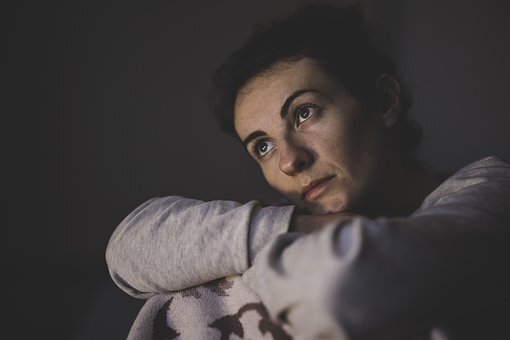 I sacrificed so much of my life to making other people happy and taking care of everyone’s needs before my own. If I choose to make selfish decisions now, why does that automatically make me a bad person?
I sacrificed so much of my life to making other people happy and taking care of everyone’s needs before my own. If I choose to make selfish decisions now, why does that automatically make me a bad person? I started to value friendships over love connections and to carefully pray during the dating process. Most of all, I learned my limits, boundaries, and possible red flags that I had been immune to in the past.
I began traveling more, visiting places I had only seen in postcards. I became the captain of the “Catch Flights Not Feelings” club, determined to take life at my own pace.
I was expected to date conveniently simply because someone was in my proximity and not because I could see them as a good fit in my life. I was accused of being cold, snarky, and even love avoidant when I marched to the beat of my own drum and even “walling” myself up to avoid being hurt.
I was expected to rush love connections and to see everyone with marriage in mind…even from the first meeting. I was expected to take up the heavy lifting of fixing someone in my role of “priesthood support”.
Eventually, weddings stopped sparking joy within me. I began to feel numb when engagements were announced and felt less excitement during virtual weddings. Something within me during the years had broken, seemingly dislodged by the silent pressure of being single in a family-oriented church. Marriage seemed more predictable in my eyes as I could often gauge how long it would take someone to get engaged once they started dating.
Most would probably think this means that I hate love. I don’t. I understand that love is pure and magical when experienced with the right person. I recognized that love in its purest most beautiful form isn’t convenient, isn’t showy or performative or even in competition with others.
Love is beautiful and sacred. It takes no prisoners, yet it claims no ransom. It pulls, tugs and hits hard without aggression. And like many, I crave it… yet I am waiting for a love that is sure and can stand the test of time instead of having something in comparison with my friends.
In the process of dating and failing, I’ve recognized the things I deserve. The things that speak to my heart and rebuild it brick by brick after every disappointment.
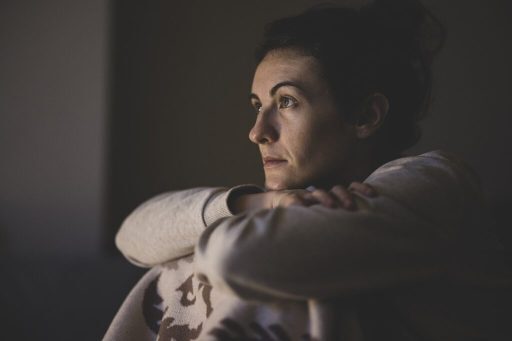 Now that I’m about to leave my twenties behind, I care less about what people think about my life decisions and more about what makes me happy. Other opinions be damned.
Now that I’m about to leave my twenties behind, I care less about what people think about my life decisions and more about what makes me happy. Other opinions be damned.I learned what I did and did not deserve and stuck by my guns calling off potentially abusive relationships.
I owe it to myself to determine what I want…when I want it and who I choose to share my future with.
I owe it to myself to choose my timing and to determine the moment I begin and end
I owe it to myself to choose for myself…not to choose someone for the sake of being removed from the shelf like a precious china doll.
I owe it to myself to choose carefully and to be cautious yet receptive to love
Love is patient… it can’t be rushed.
In a church that favors marriage, I can acknowledge that even when the music stops, and I am standing alone that I feel comfort in knowing that my love has no timeline other than what I set for it. I can know that I validate myself instead of feeling represented by a band of gold.
And I’m fine either way my life swings.
March 11, 2022
Men, Women, Wars and Fighting in Ukraine
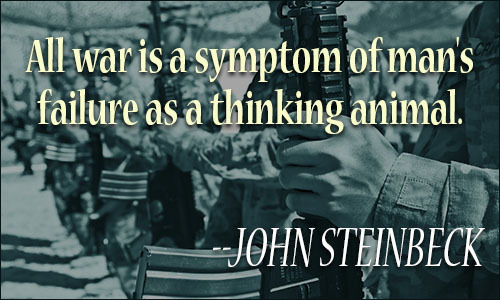
There’s a popular idea (in some circles) regarding women and war that’s resurfacing due to the conflict in Ukraine. It’s the idea that women are super lucky because we get to flee violence with the children and elderly, while the men are heroes because they stick around and do most of the fighting.
I remember about fifteen years ago listening to Dr. Laura Schlessinger’s popular call in talk program called “The Doctor Laura Show”. A military wife called in and asked for advice on something related to her husband’s deployment. I don’t remember the details of her question, but I remember Dr. Laura telling her, “You aren’t the one deployed and getting shot at. You aren’t the one who might get injured or killed. You don’t get to complain, especially not to him, because what he’s going through is so much worse than what you’re experiencing.”
I just happen to be an army wife myself, with several long years of deployments during early motherhood under my belt. I know from experience that while some men are on the frontlines, in modern warfare many more of them are safely stationed on large bases with no real risk of physical harm. Some even enjoy deployments because of the extended break it gives them from adulthood and the responsibilities of family life. Telling this wife not to complain about her stressful situation felt unfair and unkind, because I’d been that woman before and I knew how difficult it can be.
This attitude that women should be grateful to men for providing military service and never complain is once again frequently on display, such as this TikTok page, and in many Reddit comments: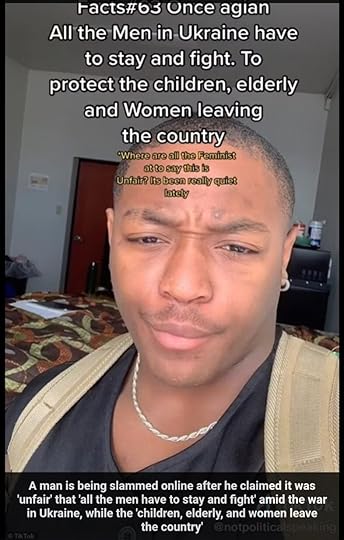
There are plenty of relevant arguments against these idea, such as the facts that…
1. Many women do indeed fight.
2. Women who want to be in infantry positions face enormous obstacles to do so – largely obstructed by men.
3. Women and girls are generally not taught fighting and military skills like their male counterparts are, and it’s unfair to expect them to magically know these things once war starts.
4. Women die less on the battlefield during wars but more in the aftermath from starvation, disease and tyranny, and women are raped and pillaged and taken as sexual slaves, so to pretend that they are relaxing in safety while men shoulder all the physical suffering is absurd.
I’m not going to delve further into any of those very reasonable arguments, but rather talk about how silly it feels to be to be praising the men (in general) for protecting us when it is the men (in general) who are starting these conflicts in the first place. Yes, the Ukrainian military right now is a majority male force protecting a majority female population – but are they protecting and saving the women from something other women have done, or is there something that femininity and female qualities have done to create this horror show? No, they aren’t. They’re protecting the women from other men in other patriarchal societies who seek to dominate and control others through violence and conquest.
If we’re going to divide war efforts into these neat categories of men, women, children and the elderly, let’s also organize it in a different hypothetical way to make it easier to think about. What if society was divided into categories of say, kindergarten teachers, construction workers, dentists and warmongers? Only one category of people has the tendency to start fights, and the rest just want to live in peace with everyone else. When another country’s warmongers come around and start to battle for land, the invaded country’s warmongers fight back. On the one hand, all the peace loving groups are grateful that someone will step up and fight for them – but on the other hand, the only reason anyone is fighting at all is because the warmongers are constantly starting wars with each other. How do you express your gratitude for those who are fighting for you while at the same time acknowledging that the warmongering system they are part of is the problem? They are only being praised for ending the problem that they started in the first place.
As a woman who does not fight in the army, I am grateful for the men who do. At the same time, I realize there would likely be a dramatic decrease in wars to fight in at all if women dominated world politics instead of men. When there are more women in a country’s legislature it significantly decreases the chances that a conflict will be resolved with military violence, so pretending that the men are hapless sacrificial lambs dying at the whims of the women they serve is wrong. We praise men for fighting in wars that only exist because of men in the first place.
This is a global nightmare and my heart goes out to everyone in Ukraine – male or female – and I hope that this invasion and the needless suffering ends soon. I know there are many selfless and heroic men who fight for their countries, and this is not a criticism of them. Good men are hurt in patriarchal and misogynistic systems, too – and war is a prime example of this. It makes men the protectors and aggressors (and women the weaker and more helpless victims). Is the system really all that awesome? Wouldn’t we prefer a system that includes men and women at equal levels in international governments that primarily brings peace instead of the current male dominated one that brings so much war?
(If you are interested, here’s a link to another post I wrote in 2020 where I shared some of my experiences as a military wife.)

One of the many female Ukrainian soldiers who is stepping up to defend her country alongside the men.
March 10, 2022
Contemplating Heavenly Mother Blog Series: Call for Submissions

Since the early days of the Church, Latter-day Saints have understood there to be a Heavenly Mother. Public acknowledgment of Her, however, has not been consistent, and has at times included active retrenchment from church leaders and discipline or marginalization of people who speak openly about Her. Despite new rumblings of institutional retrenchment, the last decade has proven to be a watershed moment of public, open seeking for Heavenly Mother in academic study, literature, art, social media, podcasts and more from both institutional LDS sources and individuals. However, among people along the Mormon continuum (from different branches of the restoration tradition with various degrees of current affiliation), there is a wide spectrum of beliefs, hopes, questions, and fears related to Heavenly Mother, the nature of God, or the feminine divine more generally.
We want to hear from you. What does Heavenly Mother mean to you in your belief and practice? What have you learned from sources or voices within the LDS tradition? What have you learned from non-LDS religious traditions, sources, or voices, either as a scholar or a seeker, that can add insights or questions to the conversation? How can the understanding of Heavenly Mother or the feminine divine be pushed beyond the too-frequent limitations of white, cis-gender, heterosexual thought? How do teachings on marriage (monogamous or polygamous) shape notions of Heavenly Mother? How has your understanding of Heavenly Mother felt hurtful or limiting to you? How has your understanding felt comforting or expansive to you? How do you lean into mystery and resist certainty?
We are seeking personal narratives, brief theological essays, fiction, poetry, art, book/article/podcast reviews, and more exploring current thought on Heavenly Mother. We strive to amplify marginalized voices and honor all spiritual journeys in an atmosphere of trust.
Please submit a guest post by April 10, 2022, to be included in the launch of this series. Posts should generally be under 1,200 words. For individual questions on this series, comment below or contact Katie Rich at KatieOnTheBlog at gmail dot com.
Now on Patreon!
Patreon is a social platform modeled off of the old “patron-artist” system to facilitate monthly contributions to fund artistic endeavors in exchange for exclusive perks. This grassroots model crowdsources funding for creative labor.
Our Exponent Patreon platform supports our nonprofit organization’s core pillars: the blog, the magazine, and the annual retreat, as well as our community funds and events, such as:
BIPOC artist & writer scholarships
Backpay to editors who polled and donated their stipends to pay magazine contributors
Needs-based, LGBTQ+, and/or BIPOC retreat scholarships
Collaborative art commissions
The free, bi-monthly writing workshop series
Virtual magazine launch parties
The magazine subscription sponsorship program
Tiers start at $2. People can also transition between tiers or cancel at any time, especially if they have their eye on a specific “perk.” Some of those perks include:
Monthly newsletter access
Invitations to the quarterly magazine launch parties
First-glimpse of new magazine cover reveals (4x per year)
A PDF compilation of our six, Pushcart Prize-nominated magazine pieces at the end of the calendar year
First-glimpse of the annual contest winning essay
Free eBook of All God’s Critters Got a Place in the Choir by Laurel Thatcher Ulrich and Emma Lou Thayne
Signed book by Laurel Thatcher Ulrich
A print of original artwork from one of our artists
A custom-made quilt, collaboratively designed with prize-winning quilter, Kirsten Campbell
Support artists, writers, and the continued sustainability of our nonprofit organization—all while getting cool stuff—by joining the conversation on Patreon.
Guest Post: A Nonverbal Communication Faith Transition: A Felled Tree #ReconstructingFaith
Guest post by Amy. Human Being. Mother of Two. Deep Thinker. Granddaughter of a Philosopher.
 Image from Assiner at WikiMedia Commons
Image from Assiner at WikiMedia CommonsMy faith transition came out of the middle of nowhere—like that fluke strong gust of wind that manages to knock down a tree that hits you before you see it coming. It wasn’t historical (no new doctrines or interpretations at play), and no one “offended” me in the terms of culture (no more than usual anyway).
I remember being at my computer, buried in technical terms and 10-20 web links up about “Non-Verbal Learning Disorder,” a specific, clinical term describing the strengths and weaknesses of living a life only through words. I experienced for myself that if a concept/thought/feeling wasn’t written down or verbalized, it didn’t exist. I remember reading the words on the page that basically said (in fancy scientific terms): “Non-Verbal communication makes up to 40% of conversations between individuals.” I’ve encountered even higher estimates since then, but I remember thinking, “Ok, that makes sense. I always feel like I am not getting the whole story when I talk to someone. Holy Cow, 40% is a lot. What does it actually look like to miss that much of a message? I could have been walking around my entire life missing up to 40% of what people wanted to tell me because I didn’t know any better.”
I saw pieces of myself in those scientific terms. But from a practical standpoint, I started living as if I wasn’t getting all the memos the first time around. I started double-checking and practicing more active listening skills. I explained to people that I love that I needed their help in making sure to verbalize the important stuff for me because, in accepting this weakness of mine, I developed the humility to admit that I was probably missing something or getting it wrong. I was willing to try again, to recalibrate on receiving all messages—I had more tools now!
WHACK comes that tree in the form of the $64,000 question—What communications had I missed from God (and God’s spokespeople) because I couldn’t pick up on the non-verbals that conveyed and fleshed out the message? What if I have been missing up to 40% of communications from God? What if I missed the memo, as it were, because God spoke to prophets who spoke to other people who spoke to me and gave lessons at church, and then I missed 40% of whatever that actually looked like?
When I prayed and pondered after that, the heavens stayed defiantly silent. I could no longer guarantee that “nudges” I had attributed as “the Spirit” were from God. Instead of the increased communication and welcoming that I was looking for, I got nothing. The anger and emotional weight from processing that I was severed from God felt far heavier than any tree branch or trunk ever could.
Yes, I believe that God “could” overcome this communication gap. But, in years since then, I am not confident that God “has” overcome this communication gap. I don’t think that God has sent me any specific message anymore—even about the existence of God.
I am hedging my bets that if God exists and God wants me to grow, maybe this silence is a womb of safety where I can learn how to make my own choices. I am left with, “What if?”
“What if, at the end of the day, what matters most isn’t what I believed, but what I did about it? What if what matters most is if I was charitable to those who were hurt by my belief system shift, and how I worked through it?”
Early in my faith journey, I decided that I wasn’t going to dwell on anger or bitterness. I chose to cling to and teach about the principle of charity because I still believe that “Charity Never Fails.” NOTE: Yes, I admit there is a HUGE unresolved irony in believing in an eternal principle taught by a suddenly un-eternal being. I still stand by it.
Making the choices every day to be at peace and not bitter/jaded about my experience is not for the fainthearted, but for the courageous. It takes courage to admit to yourself and anyone else that the important points that you held were true aren’t anymore. It takes courage to charitably disturb the status quo in anyone’s life.
It takes courage to identify and become comfortable with the discomfort of the paradox of God. I have embraced a great paradox of waiting and not waiting around for God. I, like Adam, am “waiting for a sign from God” or waiting for a clear, unmistakable, divine message. But while I am waiting on that message from God, I am not waiting for God to “save” me.
I am shoving tree branches off of me and completing a spiritual inventory of what I do believe and don’t—and what I am going to do about it. I think the most challenging aspect has been figuring out how to hold myself accountable for my actions every single day because God didn’t necessarily exist anymore to do it for me. It required me to identify my core values and breathe my essence into them as I incorporate them into my life. What does living the 10 commandments look like now? How do I honor my parents even though I am leaving the religion they brought me up in? Can a person learn to love God through loving their neighbors instead of the other way around?
I am trying to be as courageous as I can in the face of great bleakness, as charitable as I can be in the face of honoring my past and current spiritual state, as well as those of others around me. And patient. I know that faith or trust is built and rebuilt over years and decades. I am not in any big rush, and I am not going to let others impose their timelines on me.
I am taking my moral authority given to myself by my choices and ethics and trying to become a better human instead of mindlessly letting culture and institutions circumscribe my moral authority, choices, and ethics.
This post is part of the series, Reconstructing Faith. Find more from this series here.
March 9, 2022
The Body is Political: Part 1
“The ‘right’ to life, to ones body, to health, to happiness, to the satisfaction of needs and, beyond all the oppressions or ‘alienation,’ the ‘right’ to rediscover what one is and all that one can be, this ‘right’ was the political response to all these new procedures of power.” (Michel Foucault, La Volonté, p. 191).
For the next few months, I’m going to discuss Intimate Partner Violence (IPV), sometimes called spousal abuse. If you need help in the US, this website has resources. This month, I address physical abuse. TW. These are hard topics, and they bring up challenging emotions. Sometimes, we ourselves have experienced abuse or we love someone who has. And sometimes, we find ourselves wanting to shield the person, usually a man, accused of abuse. I hope we can sit with our discomfort so we can learn to create a world that more fully meets the needs of the most vulnerable among us.
Based on English Common Law, the history of wife abuse in the US is a rage-inducing dive into individual sovereignty and patriarchal control. Religious, social, and legal systems repeatedly reaffirmed by the notion that men were kings in their own homes. The legal principle of coverture stated that a wife’s identity was completely subsumed by her husband. This led to some hard-to-hear court rulings. In State v. Black, the North Carolina Supreme Court stated, “A husband is responsible for the acts of his wife and he is required to govern his household, and for that purpose the law permits him to use towards his wife such a degree of force as is necessary to control an unruly temper and make her behave herself.” Iowa put it more bluntly, “…if what is complained of as cruelty is the result of the complainant’s own misconduct, it will not furnish ground for the proceeding. The remedy is in her own power; she has only to change her conduct; otherwise the wife would have nothing to do but misconduct herself, provoke the ill treatment and then complain.” As experts in abuse will tell you, there’s nothing the victim can do that will be good enough: it isn’t about the victim, it’s about power, control, and inflicting pain.
While some courts limited the size of the instrument the man used to “correct” his wife, or insisted that the husband could not be allowed to inflict permanent damage, not all courts took a stance on the nuances, believing that the privacy of the home was of paramount importance, and that a man had the right to rule his home as he saw fit.
Who has the right to own and control another person’s body?
While wife beating is currently illegal in many countries, in reality a vast number of women continue to experience IPV. 1 in 3 women worldwide experience physical and/or sexual abuse. Michelle Bachelet, former UN Women Executive Director, said, “Stopping violations of women’s human rights is a moral imperative and one which we must come together to combat. The impact of such a scourge on society — psychological, physical, and economic — cannot be overstated.” (Read the full statement here.) Some countries, like South Korea, consider partner violence to be a domestic, not legal, matter, making eradication efforts more challenging.
But ending IPV will take effort in multiple spheres and will require prioritizing voices we sometimes ignore. Carceral feminism, the branch of feminism that pushes for judicial responses to IPV, has exacerbated the violence some women face. In “Perpetual State of Violence,” Robyn Bourgeois points out that police rarely investigate cases of missing Indigenous women, courts infrequently charge white men with the crimes, and the women who enter the system through reporting are more likely to face abuse by the police, including incarceration. Kali Nicole Gross voices similar failures to protect Black women and girls: increased racial profiling results in higher rates of incarceration for all genders, which translates into more poverty, more children in the foster care system, and less access to needed resources. In other words, white women, in our efforts to eradicate violence against women, have actually caused an increase in violence against some women.
Historically, violence in the LGB community has been ignored, partly due to draconian laws that banned their relationships, and partly due to fear over how they would be perceived by the heterosexual community. In “When Intimate Partner Violence Meets Same Sex Couples: A Review of Same Sex Intimate Partner Violence,” Rollé et all say, “Our findings show there is a lack of studies that address LGB individuals involved in IPV: this is mostly due to the silence that has historically existed around violence in the LGB community, a silence built on fears and myths that have obstructed a public discussion on the phenomenon.”
In all of these cases, bias built into the policing and judicial systems has exacerbated the threat of violence. White carceral feminism has failed.
“But why don’t women just leave?” some ask. While there are multiple, complex reasons, I’ll touch on two. Many women face religious pressure to stay. Officially, the LDS church denounces abuse in the most forceful terms; in practice individuals and leaders often fail to protect or support women, even counseling them to stay in violent situations. Speaking to an LDS therapist off the record, I was told that the LDS church doesn’t necessarily encourage women to leave abusive situations. “We believe in supporting couples as they work toward a celestial partnership. Therapy can help men control their responses and can teach women to forgive.” (I, personally, find this reprehensible and ill-conceived). On several occasions, Richard G. Scott perpetuated the notion that, as abhorrent as abuse is, the victim has some responsibility (also here). And by now we’ve all heard the stories of how LDS men protect other LDS men at the expense of women and children.
Even when women succeed in leaving, they can still be victims of men who find them and either kill them or force them to return. US court rulings have generally incarcerated women who, when driven to the brink, kill their husbands. In 1989 the Supreme Court of North Carolina ruled that a woman was not justified in shooting her sleeping husband. Married at 14, she had been with him for 25 nightmarish years, during which time they had several children. I won’t go over the details (you can read them here). It’s enough to say that 2 expert witnesses testified she had battered wife’s syndrome, had tried to escape several times and was always forced back by the husband, and that she had come close to dying multiple times. When she sought counseling, she was returned to her husband. When she sought relief through legal avenues, the police turned her away. She didn’t believe herself to be powerless: the courts, police, hospitals, and her husband all played a part in taking away any power she had. When she shot her husband, the court ruled that it was not in self defense because he was asleep at the time she shot him. The court neither understood nor cared about the power differential, the history, nor her state of mind. They only cared that, in a world of men, one man shooting another man had to be narrowly defined in order to be self defense. The laws that may protect men from each other do nothing to protect wives from abusive husbands.
In Mvskoke law, women had only to name the man and what he’d done in order to receive protection and reparation. And what did this justice look like? It depended on the woman’s needs because she also had the right to name the restitution. What would it be like to live in a society that believed wives and supported us as we worked toward healing? Wouldn’t that, in itself, greatly reduce the risk factors and aid in community support if violence occurred? Wouldn’t it help all of us to know that our bodies belonged to us, not just in a religious “God’s Temple” sort of way, but in a tangible, judicial way, and that we could claim ourselves, claim our own narratives and feelings, and have those claims respected?
I don’t think the world as a whole, and certainly not US society, is anywhere close to making this a reality. While we’ve moved beyond ads promoting the benefits of wife spanking, we’re nowhere near getting rid of the fact of it. The truth is, all too often society, laws, and the courts think men have the right to control our bodies: what we do, where we go, how we dress. It’s all connected, and it all comes back to white heteropatriarchy. When we see reports of abuse against women, we need to stop seeing them as flaws in the system. The system functions as designed. It isn’t a bug: it’s a feature.

Although sometimes portrayed in a humorous way, intimate partner violence is no laughing matter.


